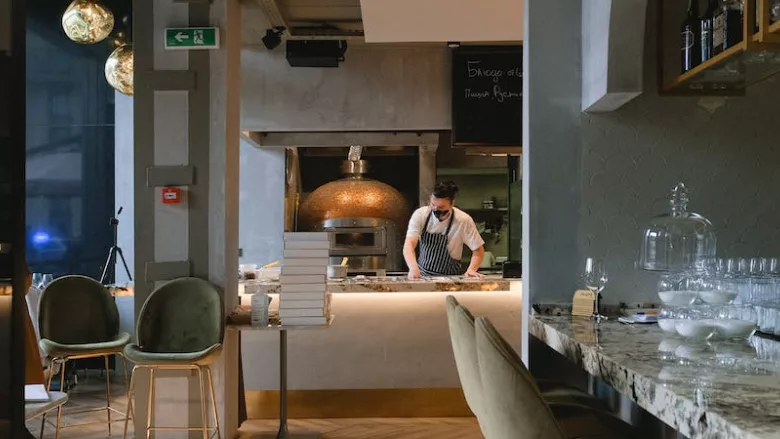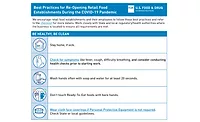Lessons Learned from Retail Food Regulatory Challenges During COVID-19 Pandemic

Credit: Anna Shvetz (shvetsa) via Pexels
A review published in the Journal of Public Health Management and Practice provides insight into the challenges of conducting retail food inspections during the COVID-19 pandemic, and summarizes lessons that can be learned for prioritizing retail food regulatory actions in the face of future unprecedented public health circumstances.
The review identified five main areas of difficulty that impacted food safety practices at the local level during the pandemic:
- Distrust of public health practitioners: Approval of the U.S. public health system has declined from 43 percent to 34 percent between 2009 and 2021, in part due to the pandemic
- Inspectors facing threats and harassment: In a National Association of County and City Health Officials (NACCHO) survey, 335 of 583 local health departments (LHDs) reported a total of 1,499 incidents of harassment
- Challenges with contact tracking and tracing foodborne illness outbreaks: At the height of the pandemic, 41 percent of people surveyed by the Pew Research Center said that they would not participate or would not be likely to participate in contact tracing activities if called by a LHD representative
- Difficulty prioritizing routine food safety activities: NACCHO reported difficulties among LHDs in prioritizing routine retail food regulatory actions due to staff being pulled for pandemic response activities and generally insufficient staffing
- Challenges with conducting virtual inspections: NACCHO reported hesitancy in adopting virtual inspections due to a lack of precedent, mistrust in technology’s ability to function, and varied virtual inspection rules between jurisdictions.
Recommendations
Fostering communication and positive relationships with foodservice establishments is the report’s primary recommendation for LHDs to better prepare for conducting retail food regulatory activities during a future public health emergency. There is a need to rebuild trust between public health professionals and communities through clear messaging, collaboration, and stakeholder inclusion in decision-making.
The report also suggests improving efforts to conduct virtual inspections, and highlights a fact sheet developed by NACCHO’s Food Safety Workgroup that includes strategies such as improving the use of technology for inspections, shifting from regulation to education, and reframing interactions between regulators and food service operators.
Additionally, LHDs have proposed the use of food safety culture to characterize retail food establishments by risk. The report recommends standardizing characteristics that indicate an establishment's food safety culture and educating inspectors on how to evaluate such characteristics during routine inspections.
LHDs have also stressed the importance of conducting a “hotwash,” or an immediate evaluation of performance, following a major event. The report suggests that LHDs create a “hotwash” template to help LHDs identify successes and failures regarding their operations during the pandemic.
Finally, the report recommends that LHDs develop and implement workplace support structures to ensure the safety of public health practitioners, especially field staff performing food safety inspections, as well as develop more formalized reporting systems to detect, monitor, and report harassment.
Looking for quick answers on food safety topics?
Try Ask FSM, our new smart AI search tool.
Ask FSM →







